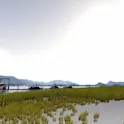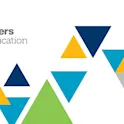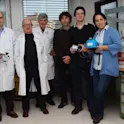1,071 news posts

Health
02 Nov 2017
New study finds Americans fatter than ever
Research published in Frontiers in Public Health estimates that 91% adult Americans are ‘overfat’ – a term defined as having excess body fat sufficient to impair health.

Life sciences
28 Oct 2017
Virtual coasts improve understanding of possible coastal planning outcomes
A simulation described in Frontiers in Marine Science helps people to assess the aesthetic aspects of proposed coastal developments and their effect on the marine environment.

Frontiers news
05 Oct 2017
Frontiers participating in European Commission Expert Group
Frontiers, along with 11 other Open Science stakeholders, will be providing strategic advice to the European Commission on the future of scholarly publishing and communication.

Life sciences
25 Sep 2017
New hope for ‘bubble baby disease’
A faster way to diagnose Severe Combined Immune Deficiency (SCID) syndrome, described in Frontiers in Immunology, aims to help more infants get life-saving treatment in time.

Young Minds
02 Aug 2017
Calling all astronomers and space scientists!
Calling all astronomers and space scientists! Can you take your most recent publications and explain it to kids or teens in under 2000 words?

Open science policy
07 Jul 2017
Research & Innovation – Shaping our future
High Level Group calls for doubling of R&I funding and a renewed focus on impact, with ‘openness’ a key factor The report of the European Commission’s High Level Group on maximising the impact of EU Research and Innovation Programmes was published on the 3rd July 2017. Based on the interim evaluation results of Horizon 2020 – the EU’s biggest Research and Innovation programme – the European Commission set up a High Level Group of 12 leading experts, tasked with advising them on how to maximise the impact of the EU’s investment in the next Framework Programme. To launch the report, Pascal Lamy, Group Chair and President Emeritus of the Jacques Delors Institute, presented the group’s vision and recommendations at the Commission organised conference, Research & Innovation – Shaping our Future. Hosted by Carlos Moedas, Commissioner for Research, Science and Innovation, over 700 scientists, innovators, business people and policy makers also attended the event to discuss how research and innovation will shape the future of Europe. Frontiers’ CEO, Kamila Markram, spoke at the event as part of the session on maintaining world class scientific excellence. Key findings: Double the funding for R&I. The report issues 11 recommendations for the future of EU R&I, […]

Humanities
06 Mar 2017
Building a Facebook of the Middle Ages
Could ‘big data’ of the past allow us to build an historical social network? The Venice Time Machine Project is finding out — by Kevin Baumer Meet Battista Nani, the Venetian ambassador to France from 1643-1668. By using new technologies to digitize, transcribe and index over 1000 years of historical documents — enough data to fill 80km of shelf space — we can now reconstruct parts of his life in much more detail. Documents such as tax returns, letters and genealogical records are now digitized and searchable, allowing Ambassador Nani to be connected to his family members, friends and colleagues in a larger network. Nani’s life trajectory emerges out of this mass of Venetian documents, through a constantly growing network of relations with particular places (the houses he owned, the places he lived or visited) and people (family and professional relations). Expand this network to cover all residents mentioned in the Venetian archives, and you have a snapshot of a social network of the time — a ‘Facebook of the Past’. Frederic Kaplan, Field Chief Editor of Frontiers in Digital Humanities, presented an early version of the Venice Time Machine Project’s vision in a 2013 TED Talk, which has since […]

Open science and peer review
20 Dec 2016
Germany setting a precedent for Open Access
Frontiers was very pleased to announce a new publishing agreement with Universität Tübingen. Established in 1477, not only is the university one of Europe’s oldest universities, but also a German excellence institution, one of only eleven to have been awarded this top “Excellent” class. There has been a growing trend toward open access in Germany for quite some time, with a recent analysis indicating that German expenditure on APCs is growing rapidly year on year. This trend is reflected at Frontiers too, with more than half of our publishing agreements being with German institutions alone. Universität Tübingen now joins The Technical University of Munich (TUM), University of Bremen and University of Konstanz on our list of Institutional Members, making that four German excellence institutions who are contributing to a new precedent for Open Access and Open Science.

Frontiers news
14 Dec 2016
Facing Young Reviewers in a Live Review BASF 2016
In association with the Bay Area Science Festival, Frontiers for Young Minds hosted the second edition of our annual event, held at the Chabot Space and Science center in Oakland on the 29th of October and what a success it was! Researchers were asked to present their work not only to the public, but also to a panel of six young reviewers who had a variety of challenging questions for them. The event began with an introduction from our Chief Editor, Robert Knight and moderated by neuroscientist, Indre Viskontas who described how Frontiers for Young Minds ‘flips the scientific process’ by having kids review scientific publications and consequently, providing an excellent tool for scientists to become better communicators. The whole event can be viewed from each of the below shots, so why not see what our young reviewers had to say. Watch the video Prior to the event, the Young Reviewers were given the chance to read the submitted papers and prepare some questions that they could ask at the end of each presentation. One of our reviewers, Paceyn (age 7), highlighted a key question that authors had overlooked when presenting an article on the processes used to study evolution – “I really liked it and there was […]

Frontiers news
01 Nov 2016
Announcing the launch of Frontiers in Education
We are very pleased to announce the launch of the first specialty sections of Frontiers in Education, a new peer-reviewed, open-access journal: Digital Education (led by Chief Editor Prof. Clifford A. Shaffer); Educational Psychology (led by Chief Editor Prof. Douglas Kauffman); Leadership in Education (led by Chief Editor Prof. Margaret Grogan); Public Health Education and Promotion (led by Chief Editors Prof. Connie J. Evashwick, Prof. Marcia G. Ory, and Prof. Matthew Lee Smith); and Special Educational Needs (led by Chief Editor Prof. Geoff Lindsay). One of the first social-sciences journals of the “Frontiers in” series, Frontiers in Education will foster cross-disciplinary work as well as fairness, transparency, and objectivity in the review process (see here for more details on the Frontiers publishing model and peer-review process). Further specialty sections will be added as the journal continues to develop, some of which are already under discussion and include: Assessment, Testing and Applied Measurement; Continuing Education; Education Policy; Language and Literacy Education; and Teacher Education. The launch of a new journal is always an exciting venture, and we would be happy to hear your thoughts or answer any questions you may have. Editorial Contact Journal Manager: Yaelle Bochatay Email: education@frontiersin.org Contribute to the journal There are […]

Frontiers news
28 Oct 2016
Frontiers in Pediatrics welcomes Prof Barbara Ludwikowski as Specialty Chief Editor
Frontiers in Pediatrics is thrilled to announce Professor Barbara Ludwikowski (Auf Der Bult Children’Hospital, Hannover) as the new Specialty Chief Editor of the Pediatric Surgery section. In her career as clinical scientist, she has made important scientific contributions to the understanding of urological diseases and genital anomalies in children and infants. As Prof. Ludwikowski emphasizes: “One of the challenges in Pediatric Surgery is the inevitable development of ever more narrow subspecialty areas. While specialization is essential given the constant addition of new knowledge, new diagnostic, treatment modalities and surgical techniques, we should remember what Owen H Wangensteen wrote in his book about the state of general surgery after World War II.” “With the extension of surgery into many new areas since World War II and consequent fragmentation, a more important query confronting surgery today is, can we survive as a unified body? The answer would appear to be free communication between its many disciplines. Tight compartmentalization breeds sterility, the only hope is transpollination, the catalyst of life.” – Wangensteen O, Wangensteen S (1978). The Rise of Surgery. From Empiric Craft to Scientific Discipline. Minneapolis: University of Minnesota Press Describing her objective for the specialty section, Prof. Ludwikowski aims to […]

Neuroscience
25 Oct 2016
Emerging Sensory Neuroprosthetics: Feasibility, Efficacy, and Metrics
By Laura E. Perlini, Frontiers The first evidence of the capacity of the human being to conceive and manufacture an object that could replace a malfunctioning part of the body is dated between 1295 and 664 B.C. It is the “Greville Chester Great Toe”: a prosthetic toe made using linen, glue, and plaster. It was supposed to aid people who had lost their toe to walk or balance. From ancient Egyptian times, much progress has been made, and nowadays, we are able to make devices that replace or supplement the input and/or output of the nervous system and could ideally bypass neural deficits caused by a disease. This type of prosthesis is called “Neuroprosthesis.” In particular, “sensory neuroprostheses” are able to convert environmental stimuli into perceptions by capturing external inputs and translating them into appropriate stimuli (usually electrical) to the nervous system. The most representative success of sensory neuroprosthetics is the cochlear implant, used in rehabilitating neurosensory hearing loss. The success of cochlear implants has boosted the interest of the scientific community for sensory neuroprosthetics: the concept of using electrical stimulation to provide sensory input to the brain is now being investigated to restore all the five senses. Currently, […]

Frontiers news
21 Oct 2016
Chemistry Week: Atoms, Rocks and the Solar System
Welcome to Chemistry Week 2016. To celebrate this year’s event called “Solving Mysteries Through Chemistry” we had great pleasure to visit and interview a geochemist with a very special interest. A geochemist who analyzes stones that fell from the sky, meteorites! We were very curious about what information they “code” and how it can be revealed. This curiosity led us to the Museum of Natural History in Geneva, Switzerland to meet Dr. Edwin Gnos. We asked him a series of questions to understand what is hidden inside a rock (no matter whether it originates from the Earth or outer space) and how this information is useful. Read on to find out more about what we learned. First of all we wanted to know what a meteorite is and how to distinguish it from other stones that can be found on the Earth. A meteorite is a piece of another planet, asteroid or meteoroid, however most meteorites come from the asteroid belt situated between Jupiter and Mars, that fell to Earth. Meteorites hit the Earth’s atmosphere at very high speeds, usually up to 100,000 km/h (much faster than bullets which travel at ~30,000 km/h). A meteorite flying through Earth’s atmosphere is […]

Frontiers news
20 Oct 2016
International Open Access Week, Frontiers for Young Minds at VU University, Amsterdam
Come join our Specialty Chief Editor, Berend Smit who will be speaking at the International Open Access week on Monday 24th October at VU university, Amsterdam. Highlighting the importance of Open Access research, Berend will be talking about how Frontiers for Young Minds invites leading scientists to reframe their recent discoveries into a language that is accessible to younger audiences. The seminars are free and open to everyone! Book your spot by registering for the session here. Time: 12:00-13:00 pm, Location: VU Amsterdam, F-D146 Atrium, Medische Faculteit, Van der Boechorststraat 7, Amsterdam plattegrond.

Frontiers news
20 Oct 2016
Medical Sociology now open for submissions
We are proud to announce the launch of the latest specialty section of Frontiers in Sociology, Medical Sociology. Led by Chief Editor Prof. Hannah Bradby, the section will consider the social production of health and illness, offering critical perspectives on medicine as culture, business, profession, and practice. Equity in health outcomes and in access to quality healthcare, the changing limits of ethical and moral behavior in the light of new biotechnological practices, comparison across various healing systems, and the production of alternative medical knowledge are just some of the topics of interest to the section. To learn more about Prof. Bradby’s vision for the section, see her Specialty Grand Challenge article available here. The section’s Associate Editor Board is already composed of the following researchers and scholars: Beth Maina Ahlberg, Uppsala University Polina Aronson, Deutsches Institut für Menschenrechte Ivy Lynn Bourgeault, University of Ottawa Sangeeta Chattoo, University of York Tiago Correia, ISCTE – University Institute of Lisbon Nicola Kay Gale, University of Birmingham Gill Green, University of Essex Nina Hallowell, University of Oxford Chimaraoke O Izugbara, African Population and Health Research Center Sakari Karvonen, National Institute for Health and Welfare Ewen Speed, University of Essex Maria Clasina Stuttaford, University of Cardiff Part of the “Frontiers […]